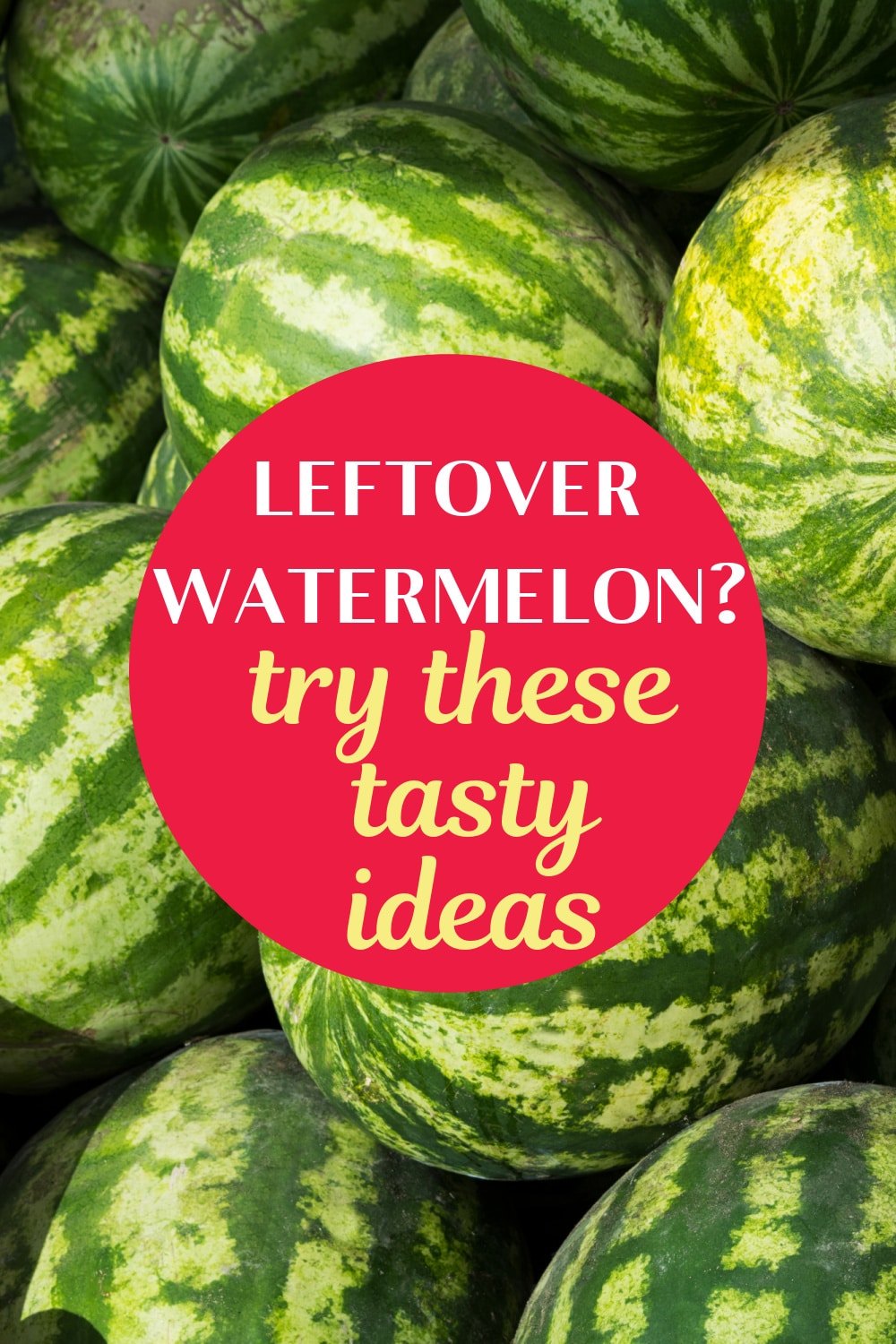Eating an entire watermelon in one sitting is hard, and you may wonder what to do with leftover watermelon.
This delicious, juicy fruit is the perfect treat on a hot summer day, but you can also enjoy it year-round.
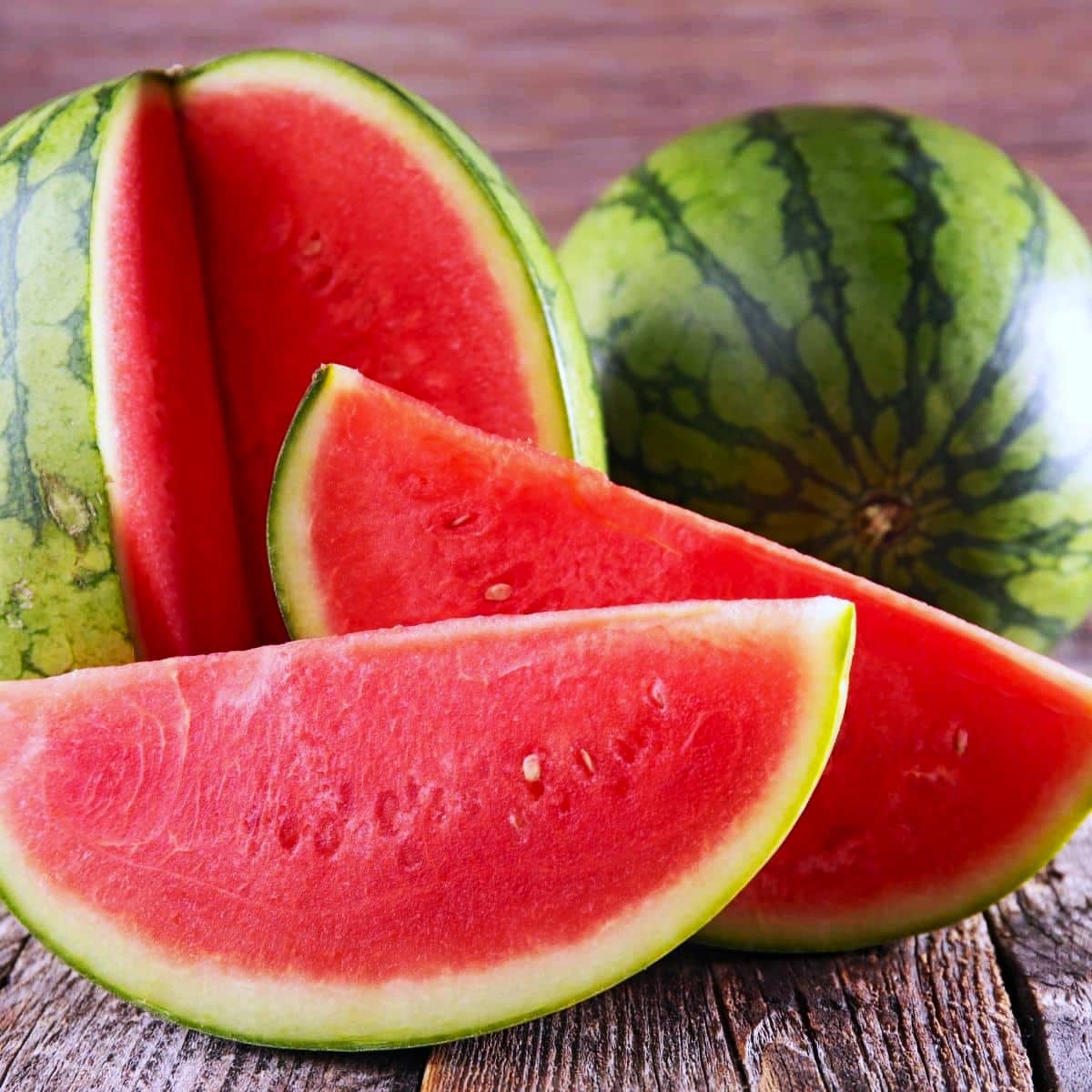
If you have leftover watermelon, you can do plenty of delicious things with it. Watermelon is a refreshing and versatile fruit used in sweet or savory dishes. Let’s take a look at some of my favorites.
What to Do with Leftover Watermelon
Some uses for leftover melon are very obvious: make frozen watermelon cubes (watermelon ice cubes), blend it into a refreshing smoothie, or add it to a fresh greens salad, like this watermelon cucumber salad or this olive mint salad with watermelon.
But that's not all you can do with leftover watermelon. Here are some delicious watermelon recipes to try.
1. Make watermelon cake
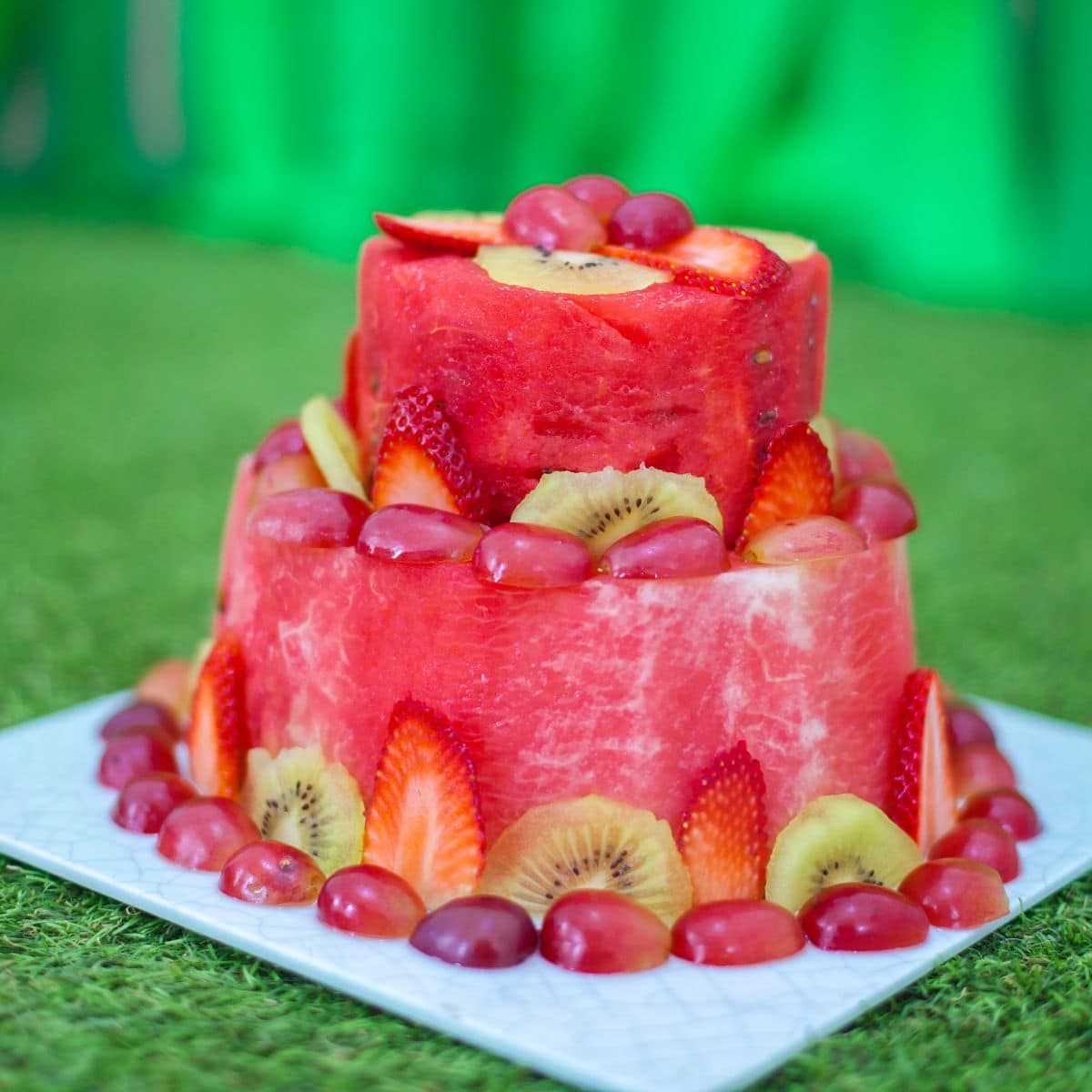
Well, not a baked cake! But a "fruit" cake with a watermelon base. Arrange watermelon slices at the bottom of a cake platter as "cake slices," and decorate with other fruits, such as strawberries, kiwi (I prefer golden kiwi because it is sweeter), blueberries, grapes, or any other fruits that you have.
Just another way to make it easy to eat it again the next day (or at the next meal).
2. Add it to fruit salad

Like the idea above, adding it to a fruit salad is an easy way to transform watermelon leftovers into something slightly different. Fruit salads are versatile, so use whatever fruit you have on hand.
I use fresh and canned fruits as needed, and I LOVE adding nuts and almonds to my fruit salads (these are better if you leave them overnight in the salad juices to plump up).
Some of the best fruits to mix with watermelon are pineapple, mangoes, bananas, and berries. But don't be afraid to experiment with others.
3. Make watermelon lemonade

Be creative: combine watermelon puree, lemon juice, and sugar. Add a sprig of mint for a deliciously refreshing summer drink.
4. Add it to green salad for a pop of color
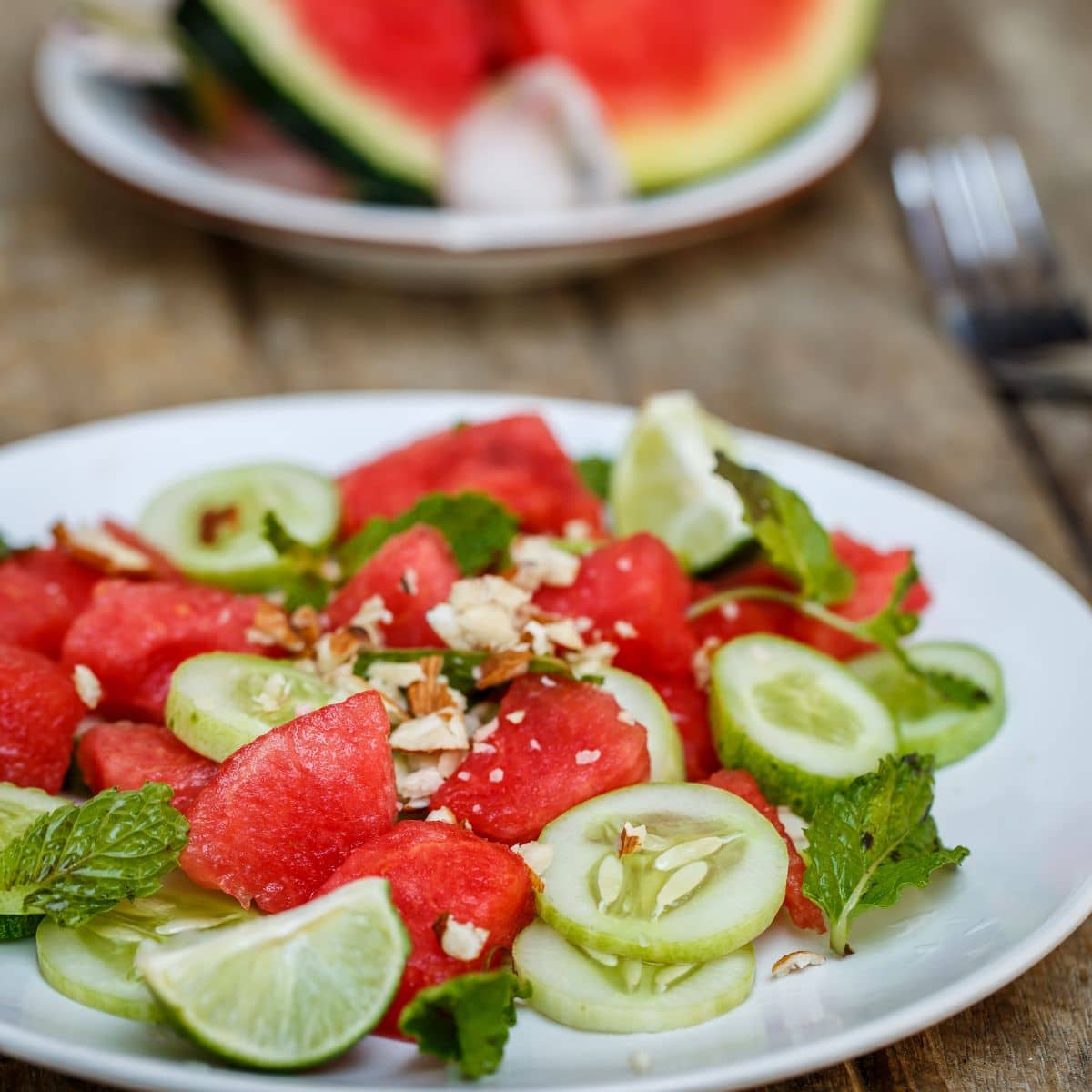
This easy, refreshing salad is perfect for a summer picnic or potluck. Start with a base of mixed greens, then add cubed watermelon, feta cheese, and chopped fresh mint. For a bit of sweetness, dress the salad with a honey-lime vinaigrette.
Don't have any mint? No problem! Substitute other fresh herbs, such as basil or cilantro, instead.
5. Blend it into smoothies
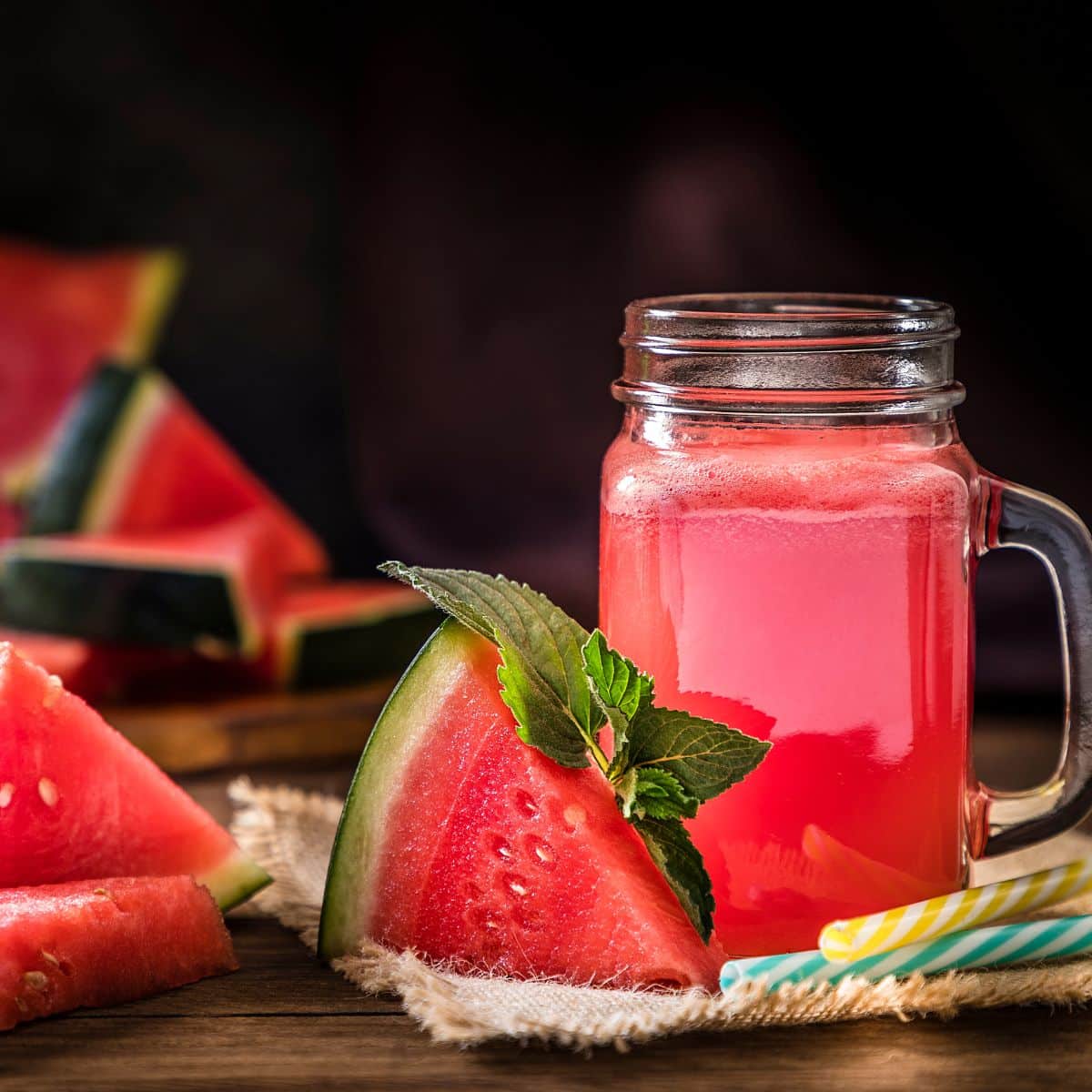
Watermelon is not only refreshing and hydrating, but it's also packed with nutrients like vitamins A and C. Plus, it's a great source of antioxidants and amino acids.
To make a watermelon smoothie, combine leftover fruit, ice, a tablespoon of honey or agave nectar for sweetness, and your favorite dairy-free milk (I love coconut milk) in a food processor.
If you want to boost your smoothie, add a handful of spinach or kale. Blend until smooth, and enjoy!
Or freeze melon cubers overnight and make watermelon sorbet with frozen fruit and fresh lime juice (fresh lemon juice works, too!).
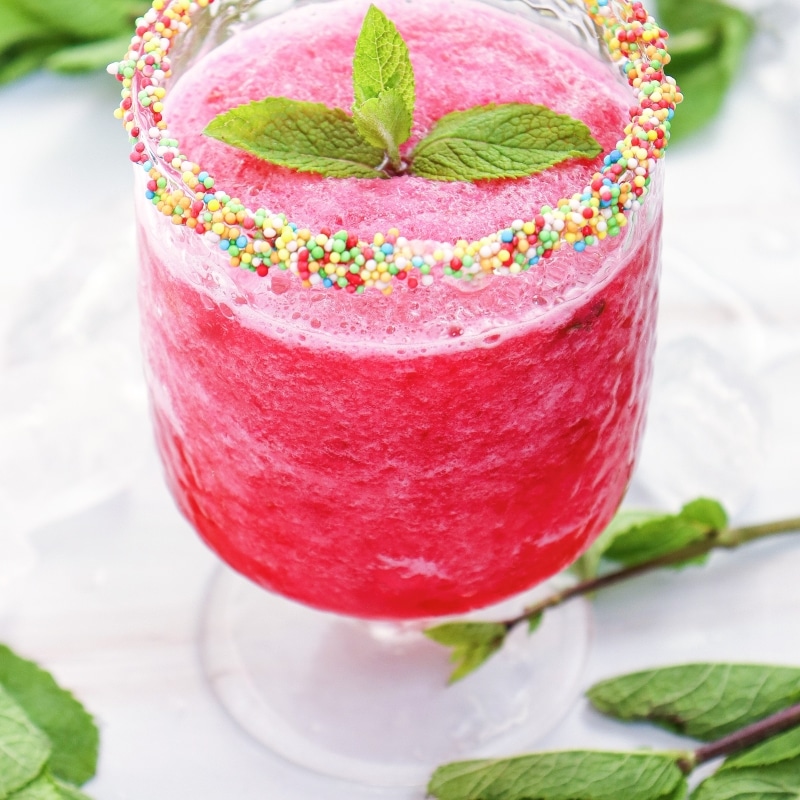
Add maple syrup as a sweetener if you prefer a sweeter sorbet. Perfect for hot summer days!
6. Watermelon fruit basket

Scoop watermelon flesh out of half of it, and use it as a fruit basket. Here are a few easy steps to make a beautiful watermelon basket:
- First, cut the watermelon in half.
- Next, use a melon baller to scoop out small balls of watermelon.
- Fill the watermelon basket with fresh fruit to the brim.
- Finally, add some garnishes like mint leaves or edible flowers.
VOILA! You've now got a stunning watermelon fruit basket, perfect for a picnic, birthday party, or just for your next fancy meal with the family 😉
7. Watermelon popsicles

There's nothing quite like a cold, refreshing popsicle on a hot summer day. Turning watermelon into popsicles is a great way to use up fruit that is starting to get a little too ripe. Plus, watermelon popsicles are easy to make and will surely be a hit with the whole family.
Cut the watermelon into chunks and blend until smooth. Then pour the mixture into popsicle molds and freeze for several hours. Once they're frozen, enjoy your delicious and healthy watermelon popsicles!
8. Fried watermelon
Fried watermelon is a delicious summer treat that's easy to make at home. Cut leftover watermelon into bite-sized pieces and dip in batter. Then, fry in hot oil until golden brown. Serve with a dusting of powdered sugar or your favorite dipping sauce. Enjoy!
9. Roasted watermelon seeds
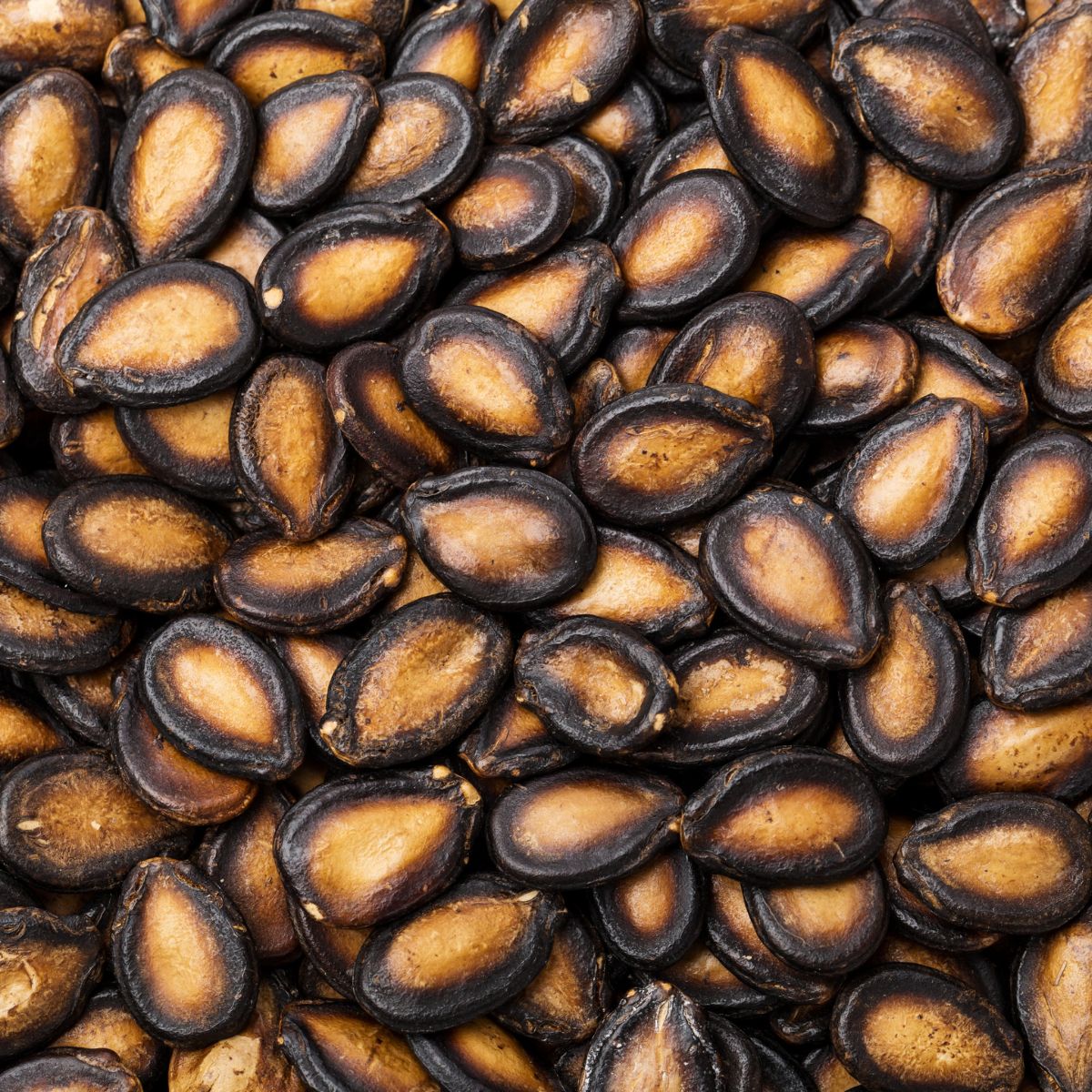
Most people don't think to save their watermelon seeds, but did you know you can roast them and eat them as a healthy snack just like people do with pumpkin seeds? Watermelon seeds are a good source of protein, fiber, and antioxidants; roasting them brings out their nutty flavor. Here's how to do it:
- Preheat your oven to 300 degrees Fahrenheit.
- Spread the watermelon seeds on a baking sheet in a single layer.
- Roast the seeds for about 20 minutes or until brown and crispy.
- Enjoy! You can eat them as is or sprinkle them on top of salads or yogurt.
If you're curious and don't want to roast your own, you can buy roasted watermelon seeds from Amazon.
10. Watermelon iced tea

Incredibly easy to make, this delicious summertime beverage is the perfect way to enjoy the sweetness of watermelon.
Combine brewed tea with fresh watermelon juice and a touch of sugar to make watermelon iced tea. Then, pour the mixture over ice and enjoy! YUM! A delicious drink for a hot sunny day.
11. Watermelon salsa

Another fun and different way to use up leftover watermelon: make watermelon salsa! This refreshing salsa is perfect for summer barbecues or picnics.
Mix some watermelon with diced tomatoes, red onion, cilantro, lime juice, and jalapeño pepper. Season to taste with salt and pepper, and enjoy! Watermelon salsa is a great way to add excitement to your next gathering.
Here's a good watermelon salsa recipe.
FAQs
Here are some frequently asked questions about leftover watermelon.
Absolutely! You can turn watermelon rind into a crunchy snack by pickling it. Delicious!
As mentioned above, If you end up with a lot of extra watermelon, you can preserve it, freeze it, store it, or use some of the great recipe ideas above to make other delicious meals and snacks.
If you've got a leftover watermelon starting to look slightly old, there's no need to throw it out. With some creativity, you can turn that watermelon into a delicious and refreshing treat: use it in a fruit salad or a smoothie, or add some milk or yogurt for a healthy milkshake.
Yes, you can freeze watermelon! While watermelon is best when fresh, freezing can help to prolong its shelf life. Cut the watermelon into small pieces, and freeze on a sheet. Once frozen, transfer the pieces to a freezer bag or an airtight container. This will help prevent the watermelon pieces from sticking together and make it easier to thaw them later. When ready to enjoy it, add it to your favorite smoothie or enjoy it as a healthy snack!
As you can see, there is no shortage of great ideas about what to do with your watermelon. And you can enjoy these ideas any time of year.
Although most people have the most watermelons in summer, you can enjoy this delicious, nutritious fruit year-round. Do you have a favorite way to enjoy your watermelon that you don't see on this list? Please share it in the comments!
